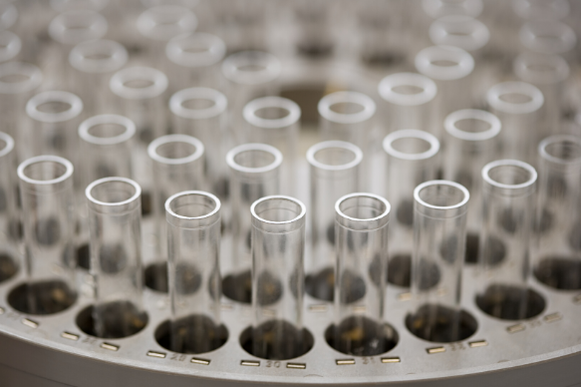|
Post by Julia Slone-Murphy 6–13 March This week, COVID-19 continues to cause havoc as conferences are postponed or cancelled. But biomedical publishing life goes on behind the coronavirus headlines, as researchers examine publication bias and reproducibility, and a dark side to preprints emerges. Conferences affected by COVID-19 An increasing number of important biomedical and healthcare conferences are being cancelled, postponed or moved online as countries begin to restrict travel and ban public gatherings; even in countries without such restrictions in place yet, conference organisers are taking it upon themselves to protect their delegates. As Cornell's Professor of Organic Chemistry Dave Collum succinctly put it, “Nobody wants to be the chump that held the Meeting of Death".
Supporting researchers in low- and middle-income countries BMJ Global Health published an interesting and important article from the senior editors at Pre-Publication Support Service (PREPPS), whose mission is to increase representation in the academic health sciences literature of authors from low- and middle-income countries (LMICs) and raise awareness of inequities in global health research. The article looks at the kind of publication support that researchers in LMICs need, from correction of linguistic errors to deeper issues such as how a narrative changes depending on its intended audience. Guidelines for reporting telomere qPCR results A review in Molecular Ecology Resources discusses sources of inconsistencies and biases in qPCR results and proposes guidelines for the minimum information that should be given when reporting qPCR telomere assays. The aim of these guidelines is to improve the transparency and clarity of reporting to produce reliable, comparable and reproducible qPCR telomere assays.
How Twitter users interact with bioRxiv preprints University of Washington genome scientist Jedidiah Carlson posted an irresistible tweet a couple of days ago, in which he declared his excitement about sharing his “preprint about preprints on Twitter on Twitter". This article by Carlson and University of Washington assistant professor of genome sciences Kelly Harris used topic modelling to investigate how more than 331,000 tweets engaged with 1,800 highly tweeted bioRxiv preprints. Most social media discussion of preprints was between scientists. However, in contrast to the praise of public accessibility to scientific research that surrounds open access publication, Carlson and Harris found that far-right communities appear to be especially active in their engagement with preprints on subjects including the genetic architecture of behavioural traits, and neurological and physiological variation across sexes and genders. Language and publication bias The authors of a concerning article in PLOS One this week compared scientific articles on stroke rehabilitation published in English with those published in other languages, and found that studies published in English were better in methodology and quality of reporting, while those published in other languages were likely to overestimate treatment effect. The study relates to the Cochrane Collaboration's recommendations for reducing bias in studies by including non-English articles in literature searches, but raises important questions as to how helpful this practice – which on the surface seems like sensible advice – would really be. On a related note, an editorial in Pain Medicine discusses implicit (unconscious) and explicit (overt, from sponsors and organisers) bias in consensus development conferences related to medical diagnosis and treatment. The authors call for the recognition and transparent declaration possible bias arising from sponsors' intent and interests, as well as attempts to mitigate such bias, when publishing results from consensus group meetings.
0 Comments
Your comment will be posted after it is approved.
Leave a Reply. |
We've helped researchers publish in:
/
- 1
- 2
- 3
- 4
- 5
PNAS, NeuroImage, Journal of Neuroscience, Scientific Reports, Neurobiology of Aging, Frontiers in Molecular Neuroscience, Journal of Psychiatric Research, Journal of Physiology, Frontiers in Cellular Neuroscience, Journal of Alzheimer's Disease, Journal of Neurochemistry, American Journal of Physiology: Cell Physiology, Behavioural Brain Research, Frontiers in Neurology, and more...
/
- 1
- 2
- 3
- 4
- 5
/
- 1
- 2
- 3
- 4
- 5
PLoS One, Brain Research, Psychiatry Research, Brain Research Bulletin, European Journal of Pharmacology, Psychological Research, International Journal of Developmental Neuroscience, Metabolic Brain Disease, Journal of Cardiovascular Pharmacology, Journal of Molecular Neuroscience, Cell and Molecular Neurobiology, Journal of the Neurological Sciences, Neuroscience Letters, and more...
/
- 1
- 2
- 3
- 4
- 5
- 0
- 1
Leave the manuscript with us. Your research needs you.
© 2011–2024 NeuroEdit Ltd.
NeuroEdit Ltd is a company registered in England and Wales, number 10232582.
Registered office address: Dale House 64 Fink Hill, Horsforth, Leeds, England, LS18 4DH.
Privacy policy
NeuroEdit Ltd is a company registered in England and Wales, number 10232582.
Registered office address: Dale House 64 Fink Hill, Horsforth, Leeds, England, LS18 4DH.
Privacy policy




 RSS Feed
RSS Feed
